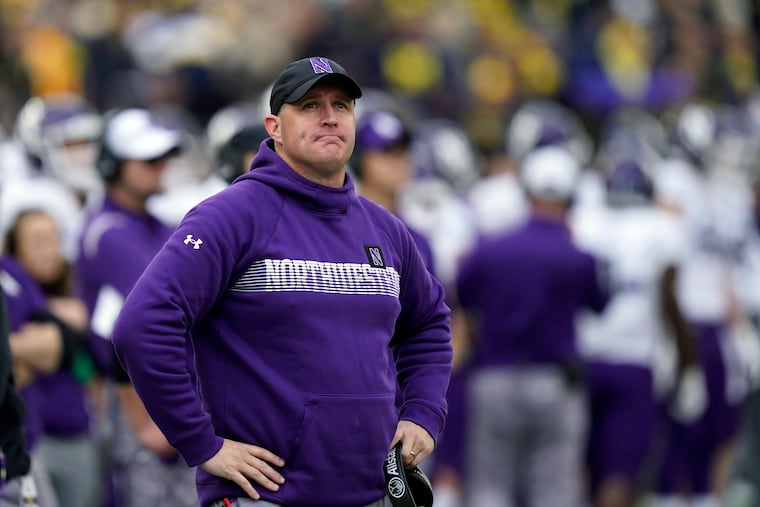Why we need college newspapers
Student media outlets are often the only institutions that can hold universities to account. How else will we learn about campus crime, tuition hikes, and other issues that bedevil higher education?

When people ask me where I went to college, I say Columbia. But when I’m asked where I got my education, I have a different answer: the Columbia Daily Spectator.
Forty years ago — yes, I’m really that old — I served as editor of the university’s student newspaper, where I learned to read, write, and think. And I also learned that the student paper is the only institution that can hold universities to account.
Witness recent events at Stanford, where president Marc Tessier-Lavigne resigned following the student newspaper’s exposé of data manipulation in scientific papers he had coauthored. At Northwestern, meanwhile, football coach Pat Fitzgerald was fired after the campus paper reported about hazing rituals on his team.
But the college press can’t play this kind of watchdog role if the colleges are censoring it at the same time. And that’s precisely what’s happening across the country.
According to a survey by the Philadelphia-based Foundation for Individual Rights and Expression (FIRE), nearly two-thirds of college newspapers experienced some kind of administrative censorship during the 2020-21 academic year.
That was toward the beginning of COVID-19, of course, and there was a lot of news to censor. At Arizona State, the campus paper revealed that students who were supposed to be in isolation had left their dorms. The University of Virginia’s paper found that college athletes were getting tested for COVID up to three times a week, while other UVA students had to exaggerate their symptoms just to receive a single test.
The best university leaders try to use such criticism to improve. And the worst ones try to shut it down.
At Haskell Indian Nations University in Kansas — America’s oldest continually operating school for Native Americans — the president threatened the campus paper’s editor for contacting the local police department about the death of a university employee.
“You have brought yourself ... and me unwarranted attention,” the president wrote the editor. The editor had also violated the school’s student conduct code, the president warned, and continuing do to so “may result in disciplinary action.”
Translation: You’re investigating something I’d prefer to ignore or hide. Stop it, or I’ll crush you.
After FIRE sued the university for violating the editor’s civil rights, a district court ordered Haskell to guarantee freedom for the student press and to pay $40,000 in legal fees.
But most administrators aren’t unwise enough to put their censorship goals in writing, as the Haskell president did. They use subtler means, and they often get away with it.
In the FIRE survey, 60% of responding editors said they had received administrative requests not to publish certain content or information, 14% said they had been threatened with loss of funding, and 10% reported a threat of disciplinary penalties.
And sometimes, sadly, the censorship pressure comes from fellow students. In 2015, students at Wesleyan demanded the defunding of the campus newspaper after it published a student op-ed criticizing Black Lives Matter. The same year, the student government at the University of California-San Diego voted to stop funding all media organizations after a satirical magazine mocked “safe spaces” in an article entitled, “UCSD Unveils New Dangerous Space on Campus.”
Here you might ask, “Who cares?” There are thousands of websites and social media accounts where people can obtain information about colleges. Why should we care if a student newspaper gets muzzled?
Here’s why: It’s often the only venue for real, honest reporting about skyrocketing tuition, campus crime, and all of the other complex issues that bedevil higher education. Thousands of local newspapers have constricted or closed, so they don’t have the capacity to investigate their area colleges or universities. If the student paper doesn’t do it, it probably won’t happen.
Full disclosure: We didn’t break any huge stories when I edited the college paper. But we did expose poor conditions in buildings purchased by Columbia, which was pushing out tenants with an eye to converting the properties into student housing. We ran a series about ongoing U.S. Department of Defense research at the university, one of the triggers of the student riots a decade earlier. And we reported about sexual assault at a fraternity, which earned me obscene middle-of-the-night phone calls from (I assumed) members of the frat.
We also engaged in angry shouting matches with university administrators. One evening, the college dean called our office, where we routinely answered the phone with the phrase “House of Truth.” (Remember, we were young.) “House of Truth?” the dean asked, incredulously. “I was trying to contact Spectator. I must have the wrong number.”
He hated us, but — to his credit — he never tried to censor us. I wish more universities today would follow his lead. Without free and independent college newspapers, we can’t learn what we need to make colleges better. And that might be the worst news of all.
Jonathan Zimmerman teaches education and history at the University of Pennsylvania. He is the author of “Campus Politics: What Everyone Needs to Know” and “The Amateur Hour: A History of College Teaching in America.”